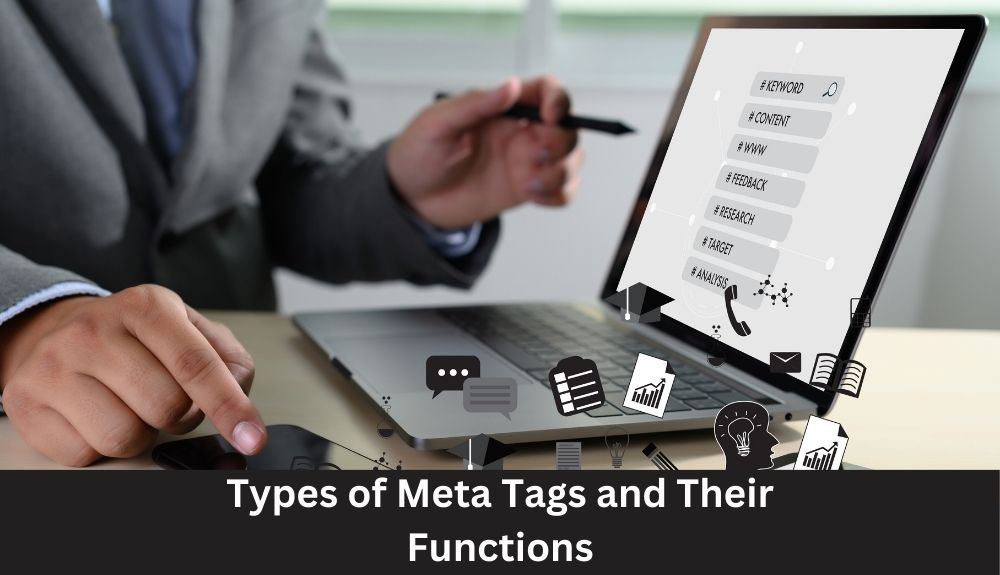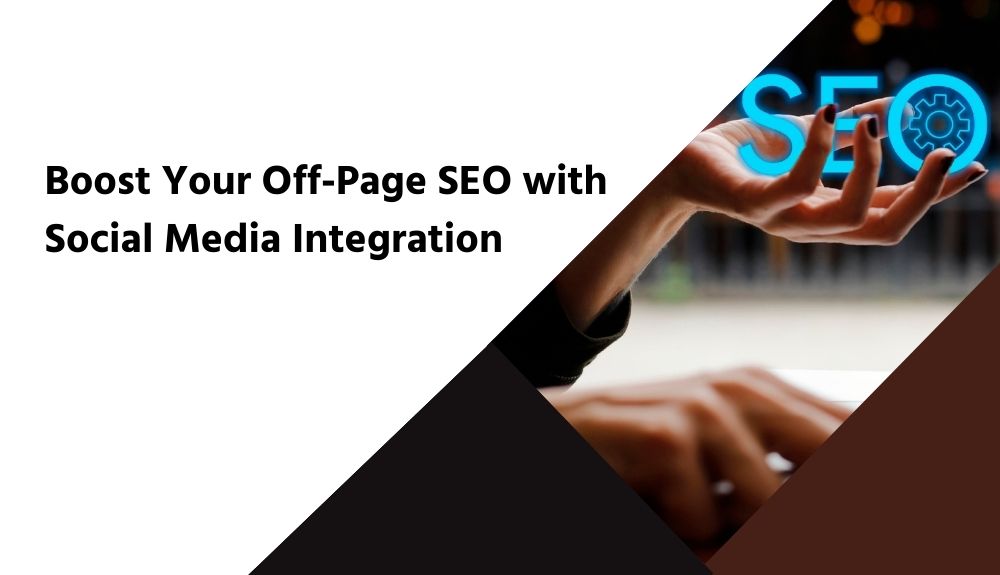Welcome to the exciting world of SEO optimization! If you’re new to the game or looking to up your online visibility, then you’ve come to the right place. Today, we’re diving into a crucial aspect of on-page SEO: meta tags. These little snippets of code may seem insignificant at first glance, but they play a vital role in attracting search engine attention and driving traffic to your website. So, buckle up as we uncover the secrets behind effective meta tags and how they can supercharge your online presence. Get ready to take your SEO game to new heights!
Understanding On-Page SEO Optimization
When it comes to optimizing your website for search engines, on-page SEO is a key player. But what exactly does it entail? In simple terms, on-page SEO refers to the strategies and techniques that you implement directly on your website to improve its visibility in search engine results.
One of the primary goals of on-page optimization is to ensure that search engines can easily crawl and understand your website’s content. This involves making sure your site has clear structure and organization, using relevant keywords throughout your pages, and providing high-quality and valuable content for users.
Another important aspect of on-page SEO is optimizing individual web pages with meta tags. These are snippets of HTML code that provide information about a webpage’s content to search engines. Meta tags include elements such as title tags (which appear as clickable headlines in search results), meta descriptions (brief summaries displayed beneath the title tag), and meta keywords (which used to be significant but are now less influential).
By incorporating relevant keywords into these meta tags, you can increase the chances of your website appearing in relevant searches. However, it’s essential not to stuff them with too many keywords or create misleading descriptions just for the sake of attracting clicks – this could harm rather than help your rankings.
In addition, other aspects like URL structure optimization, header tag usage, image optimization, proper internal linking are all part of an effective on-page SEO strategy.
Understanding how on-page SEO works sets a strong foundation for improving your website’s organic visibility. By implementing best practices such as creating compelling meta tags and structuring content effectively around targeted keywords, you’ll be well-positioned to climb up those coveted search engine rankings!
What are Meta Tags?
Meta tags are snippets of HTML code that provide information about a webpage to search engines and website visitors. They play a crucial role in on-page SEO optimization by helping search engines understand the content and purpose of a webpage.
There are several types of meta tags, each serving a specific function. The most common ones include the title tag, meta description tag, and meta keywords tag.
The title tag is displayed as the clickable headline in search engine results pages (SERPs). It should be concise, relevant, and contain targeted keywords to attract users’ attention.
The meta description tag provides a brief summary of the webpage’s content. It helps persuade users to click through from SERPs by providing an enticing preview.
While not as important for SEO as they once were, the meta keywords tag allows webmasters to specify relevant keywords for their page. However, search engines now give more weightage to other factors when determining rankings.
Types of Meta Tags and Their Functions

Meta tags play a crucial role in optimizing the on-page SEO of a website. These tags provide information to search engines about the content and purpose of each webpage. There are several types of meta tags, each serving a specific function.
1. Title Tags: The title tag appears as the headline in search engine results and browser tabs. It should accurately describe the webpage’s content and include relevant keywords to improve visibility.
2. Meta Description Tags: The meta description tag is a brief summary of the webpage’s content that appears below the title in search results. It should be enticing, informative, and encourage users to click through to your site.
3. Meta Keywords Tags: Although not as influential as they once were, meta keywords tags still have some relevance for certain search engines. They consist of relevant keywords related to the webpage’s content.
4. Robots Meta Tag: This tag instructs search engine crawlers on how to index or follow links within a page.
5. Canonical Tag: The canonical tag helps eliminate duplicate content issues by specifying which version of similar web pages should be indexed by search engines.
6. Open Graph Tags: These tags are used specifically for social media platforms like Facebook and Twitter, allowing you to control how your webpage appears when shared on these platforms.
Each type of meta tag serves a specific function in improving your website’s visibility and user experience while adhering to best practices outlined by major search engines like Google.
Significance of Meta Tags in On-Page SEO
Meta tags play a crucial role in on-page SEO optimization by providing search engines with valuable information about the content of a webpage. These snippets of code, placed within the HTML head section, help search engines understand what a page is about and how it should be indexed.
One important meta tag is the title tag, which specifies the title of your webpage. This tag appears as the clickable headline in search engine results pages (SERPs) and should accurately reflect the content on your page. By optimizing your title tags with relevant keywords and compelling language, you can increase click-through rates and improve organic visibility.
Another significant meta tag is the meta description. Although not directly used for ranking purposes, this short snippet of text appears below the title in SERPs and acts as an advertisement for your webpage. Crafting concise and persuasive meta descriptions that entice users to click through to your site can significantly impact organic traffic.
Additionally, there are other types of meta tags such as robots.txt directives that provide instructions to search engine crawlers regarding which parts of a website they should or shouldn’t index. Similarly, canonical tags help consolidate duplicate content issues by indicating preferred versions of webpages.
Meta tags are essential elements in on-page SEO optimization because they communicate valuable information to both users and search engines. By strategically using these tags to highlight relevant keywords and create enticing descriptions, you can enhance visibility in SERPs while improving user engagement metrics like click-through rates.
Tips for Writing Effective Meta Tags
When it comes to optimizing your website for search engines, meta tags play a crucial role. These small snippets of code provide information about the content on your web pages and help search engines understand what your site is about. To ensure that your meta tags are effective in boosting your on-page SEO, here are some tips to keep in mind.
1. Be concise: Meta tags have character limits, so make sure to be concise and focused with your descriptions. Include relevant keywords that accurately describe the content of each page.
2. Use unique meta tags: Each page should have its own unique set of meta tags. Avoid duplicating them across multiple pages as this can confuse search engines and potentially harm your rankings.
3. Include important keywords: Incorporate relevant keywords into both the title tag and description tag of each page’s meta tags. This will help improve visibility for those specific terms in search engine results.
4. Write compelling descriptions: The description tag acts as a preview of what users can expect from clicking on your link in search results. Craft persuasive, engaging descriptions that entice users to click through to your website.
5. Don’t stuff with keywords: While it’s important to include keywords, avoid stuffing too many into the meta tags as this can appear spammy and negatively impact user experience.
6. Prioritize user intent: Consider what users are searching for when crafting your meta tags and tailor them accordingly. Understanding user intent will help you create more targeted and relevant meta tag content.
By following these tips, you’ll be well-equipped to write effective meta tags that contribute positively to improving your website’s visibility in search engine rankings.
Common Mistakes to Avoid with Meta Tags
Meta tags play a crucial role in on-page SEO optimization, helping search engines understand the content and context of a webpage. However, there are some common mistakes that website owners often make when it comes to utilizing meta tags effectively. By avoiding these errors, you can ensure that your meta tags contribute positively to your SEO efforts.
One common mistake is using duplicate or irrelevant meta tags across multiple pages. Each page should have unique and relevant meta tags that accurately describe its content. Using generic or copied meta tags not only confuses search engines but also fails to provide users with accurate information about your page.
Another mistake is neglecting to include important keywords in your meta tag descriptions. Keywords help search engines determine the relevance of your page for specific search queries. By including relevant keywords in your meta tag descriptions, you increase the chances of attracting targeted organic traffic.
Lengthy or excessively short meta tag descriptions can also be detrimental to your SEO efforts. Ideally, each description should be around 150-160 characters long and provide concise yet informative summaries of the page’s content. This allows both search engines and users to quickly grasp what the page is about.
Keyword stuffing within meta tag descriptions is another common error that should be avoided at all costs. While it’s essential to include relevant keywords, overusing them will appear unnatural and spammy to both users and search engines alike.
Furthermore, failing to regularly update outdated or inaccurate information within your meta tags can negatively impact user experience as well as SEO rankings. It’s important to periodically review and update your metadata so that it remains current and reflects any changes made on the corresponding webpages.
Ignoring mobile optimization when crafting meta tags is a significant oversight in today’s mobile-centric world. With an increasing number of users accessing websites through their smartphones or tablets, ensuring that your metadata caters specifically to mobile devices can greatly improve user experience and overall site visibility.
The Future of Meta Tags in SEO

Meta tags have long been a staple in on-page SEO optimization, providing search engines with valuable information about the content and structure of web pages. However, as search algorithms evolve and user behavior changes, the role of meta tags is constantly evolving.
One emerging trend is the increasing importance of semantic markup over traditional meta tags. Search engines are becoming smarter at understanding context and meaning, so using structured data markup such as schema.org can greatly enhance visibility in search results.
Another development to watch out for is personalized search. With advancements in machine learning and AI, search engines are getting better at delivering tailored results based on individual preferences and browsing history. This means that generic meta tags may become less effective, requiring more personalized approaches to optimize content for specific audiences.
Voice search is also shaping the future of meta tags. As voice assistants like Siri and Alexa gain popularity, optimizing meta descriptions for conversational queries becomes crucial. Incorporating natural language phrases into your metadata can help capture these voice-based searches effectively.
Mobile optimization will continue to play a significant role in SEO strategies going forward. With more people accessing websites through smartphones or tablets than ever before, mobile-friendly meta tags will be essential for ensuring optimal user experience across different devices.
As technology advances further, new types of media-rich formats like augmented reality (AR) and virtual reality (VR) could potentially impact how we use meta tags. These immersive experiences may require additional metadata elements to provide accurate information about these interactive contents.
While it’s difficult to predict exactly what lies ahead for meta tags in SEO optimization, one thing remains clear: they will continue to be an essential tool for helping both users and search engines understand website content better. Understanding how trends influence their usage allows us to adapt our strategies accordingly – staying ahead of the game while driving organic traffic growth!
Conclusion
Meta tags play a crucial role in on-page SEO optimization. These small snippets of code provide search engines with important information about your website’s content. By carefully crafting and optimizing meta tags, you can improve your chances of ranking higher in search engine results and attracting more organic traffic.
Understanding the different types of meta tags and their functions is essential for effective on-page SEO optimization. Title tags help search engines understand the main topic of your page, while meta descriptions provide a concise summary that entices users to click through to your site. Other meta tags like robots.txt, viewport, and canonical tags also serve specific purposes in optimizing your website.
The significance of meta tags cannot be overstated when it comes to on-page SEO. Well-written and relevant title tags can significantly impact click-through rates, while compelling meta descriptions can increase user engagement once they land on your page. Additionally, using appropriate keywords within these elements helps search engines identify the relevance of your content to specific queries.
To write effective meta tags, keep them concise yet descriptive. Use relevant keywords naturally within the title tag and create enticing summaries that accurately reflect the page’s content in the meta description field. Avoid keyword stuffing or writing misleading information as this may harm both user experience and rankings.
While understanding how to optimize meta tags is important, it’s equally vital to avoid common mistakes associated with them. Some errors include duplicating title or description across multiple pages, leaving out critical information from these elements, or neglecting to update them regularly as you make changes to your website’s content.












